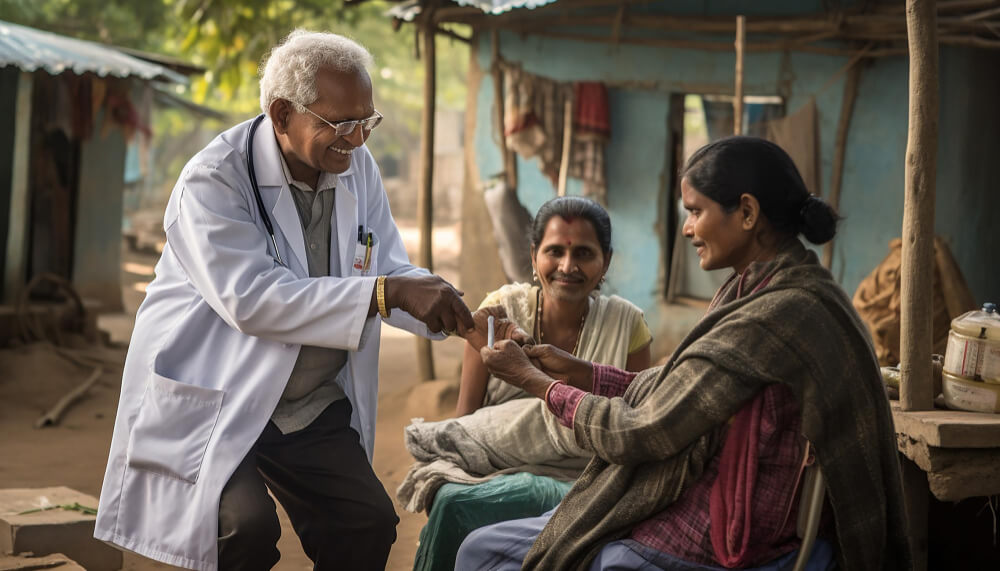
Home » Health Care Women NGO in Delhi
Vridhi Welfare Trust plays a vital role in making healthcare more accessible and inclusive, especially in areas where people struggle to get proper medical care. In places where government or private services fall short, the Trust steps in to support those who need it most—offering care, spreading awareness, advocating for better policies, and improving local health systems.

Health Clinics & Hospitals: The Trust operates clinics and small hospitals in underserved communities, offering basic healthcare, maternal and child services, vaccinations, and more.
Mobile Health Units: For people living in remote or difficult-to-reach areas, mobile clinics provide essential care where permanent facilities are unavailable.
Medical Supplies: In emergencies or underserved areas, Vridhi Welfare Trust supplies medicines, equipment, and essentials to hospitals and clinics.
Disease Treatment: They focus on treating and preventing major diseases like HIV/AIDS, TB, malaria, and neglected tropical diseases.
Disaster Relief: During natural disasters, conflicts, or pandemics, the Trust provides immediate medical aid, mental health care, and ongoing support.
Epidemic Control: In the face of outbreaks like COVID-19 or cholera, they step in to offer testing, treatment, vaccinations, and help contain the spread—often in coordination with public and international agencies.
Public Health Campaigns: They educate the public on hygiene, nutrition, vaccinations, and reproductive health to encourage healthier habits.
Community Engagement: By working closely with local people, Vridhi Trust trains community health workers and breaks down cultural barriers that prevent access to healthcare.
Mental Health: They also promote mental health awareness and provide counseling, especially in communities affected by trauma or poverty.
Health Rights Advocacy: The Trust fights for the right to healthcare for all, especially marginalized groups in remote or low-income areas.
Funding & Partnerships: They collaborate with governments and international partners to secure funding and strengthen healthcare systems.
Policy Reform: Vridhi Welfare Trust advocates for policy changes that lead to long-term improvements in healthcare access and quality.
Training Programs: Doctors, nurses, midwives, and health workers receive hands-on training in key areas like emergency care, child health, and infectious disease management.
Strengthening Local Systems: By building local skills and infrastructure, they help communities continue offering quality care even after their direct involvement ends.
Facility Development: They help build and upgrade clinics and hospitals with proper equipment and resources to ensure quality care.
Health Data Collection: Vridhi Welfare Trust collects data to track diseases, evaluate health programs, and support evidence-based policies.
Health Insurance Support: In rural or low-income areas, they assist in setting up affordable, community-based health insurance schemes.
Maternal & Child Health: Services include prenatal and postnatal care, vaccinations, nutrition support, and safe childbirth programs.
Nutrition: The Trust combats malnutrition with special programs for children and pregnant women, especially in areas hit by food insecurity.
WASH Initiatives: Their work often includes water, sanitation, and hygiene projects to reduce diseases and improve public health.
Fighting Major Diseases: Ongoing efforts target HIV/AIDS, tuberculosis, and malaria through prevention, treatment, and awareness—especially across India.
Bridging Gaps in Care: Vridhi Welfare Trust is committed to reducing inequalities in healthcare caused by gender, age, income level, or geography. Their goal is to make sure every person—regardless of background—gets the care they deserve.


© All Copyright 2024 by Vridhi Welfare Trust
